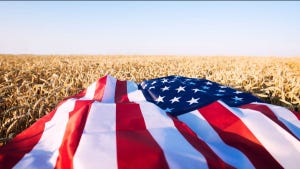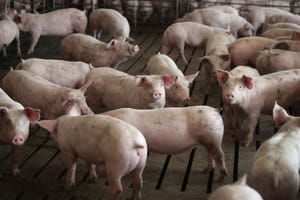December 19, 2014

President Barack Obama has announced plans to ease economic and travel restrictions imposed against Cuba. Diplomatic ties between the United States and Cuba were severed by Washington more than 50 years ago, so a lot of history has to be restored on both sides of the issue before the two countries can truly be trade partners. Even though, the initial response has been positive from the agriculture camp.
Expanding opportunity for U.S. farmers
In a statement, U.S. Department of Agriculture secretary Tom Vilsack said in a statement:
“Throughout history, agriculture has served as a bridge to foster cooperation, understanding and the exchange of ideas among people. I have no doubt that agriculture will continue to play that powerful role as we expand our relationship with the Cuban people in the coming years. … expands opportunity for U.S. farmers and ranchers to do business in Cuba. It removes technical barriers between U.S. and Cuban companies and creates a more efficient, less burdensome opportunity for Cuba to buy U.S. agricultural products”
Learn more here.
11 million more consumer of U.S. agriculture
American Farm Bureau Federation President, Bob Stallman, says his organization supports the president’s move toward normalizing relations with Cuba.
Stallman says:
“Farm Bureau has long called for a removal of trade restrictions with Cuba, and we believe expanded trade with the U.S. can serve as a cornerstone for additional reforms. The president’s opening to Cuba promises to improve trade conditions by making it easier for Cuba to buy U.S. agricultural and food products. This is welcome news for our nation’s farmers and ranchers.
“Improving trade relations between the U.S. and Cuba will expand access to a market of 11 million consumers for U.S. agriculture. That’s good for Cuba and good for America, too.”
Learn more here.
Allow relationships to blossom
National Farmers Union President Roger Johnson says there has been a concerted effort at least the last five years to normalize relations with Cuba, seeing the value in the close proximity of the two countries.
Johnson says:
“Acknowledging that Cuba is one of our closest neighbors and a potentially valuable trading partner, and allowing the relationships between the two nations and its citizens to renew and blossom is good for both nations.”
Johnson cited the administration’s announcement as not accomplishing the intended goal of promoting a democratic and prosperous Cuba, making for the right time to discontinue the trade embargo.
Learn more here.
Large market for U.S. soybeans
Cuba represents significant trade opportunity for U.S. soybean growers, and the American Soybean Association (ASA) applauded the Obama administration’s announcement with a statement.
ASA’s President Wade Cowan says:
“Soybean growers are particularly excited about the announcement, specifically because of the promise that the Cuban marketplace holds for American beans, but also in the larger scope of trade’s ability to overcome even the most challenging geopolitical barriers. Trade builds bridges between nations, but it also generates real and concrete value for American farmers by expanding and strengthening our opportunities in foreign markets. Whether it’s the burgeoning Cuban demand for pork, poultry and dairy or that nation’s expanded demand for cooking oils, American soybeans have a significant market opening just off our own shores.”
Cowan says the opening of trade between the U.S. and Cuba means more than more customers for U.S. farmers’ products.
“More important in today’s announcement, however, are the implications for the Cuban people. While we have been able to sell our products in the country for decades, our Cuban customers were unable to secure the same financing and credit opportunities as other trade partners. Conversely, the restrictions on financing made it difficult for our products to compete in that marketplace. The easing of these restrictions will make it easier for American soy to gain a foothold in the market, but more importantly, it will enable the Cuban people to purchase the products that they need and want as their market develops.”
Learn more here.
Leveling the field
The National Corn Growers Association (NCGA) also welcomed President Obama’s announcement, saying it’s good news for American corn farmers, but there is more to it than that.
NCGA President, Chip Bowling, says:
“We have long supported normalized trade relations with Cuba, as we seek to open markets and feed the world. We applaud the administration for removing regulatory and financial barriers to trade with Cuba and leveling the playing field with other countries.”
Though the United States has allowed agricultural products to be exported to Cuba since 2001, financing restrictions and other hurdles have limited the ability of U.S. agriculture to compete with other nations. According to the U.S.-Cuba Trade and Economic Council, U.S. agricultural exports to Cuba were valued at nearly $350 million in 2013.
“Cuba’s market of 11 million consumers represents a great opportunity to expand trade and increase exports for corn and other ag products. We will continue to work in close partnership with both the U.S. Grains Council and our livestock allies to promote corn, corn products and high-quality protein as a nutrition source for consumers in Cuba and around the world.”
Learn more here.
Historical trade moment
Executives from Cargill see the easing of the embargo between the two countries as creating new opportunities for U.S. agriculture and enhancing Cuba’s food security.
Cargill Chief Executive Officer and President, David MacLennan, says:
“Our two countries and people deserve the opportunity to trade and engage with one another. This is an important moment. The history of trade liberalization has clearly led to economic and social benefits for others.
Cargill has long been a proponent of ending the embargo and has supported humanitarian exemptions on food shipments to Cuba.
Devry Boughner Vorwerk, a Cargill vice president, says:
“This move will drive growth in both countries. It will create a new market for U.S. farmers, ranchers and food companies, and give the Cuban people improved access to affordable food.”
Learn more here.
You May Also Like



